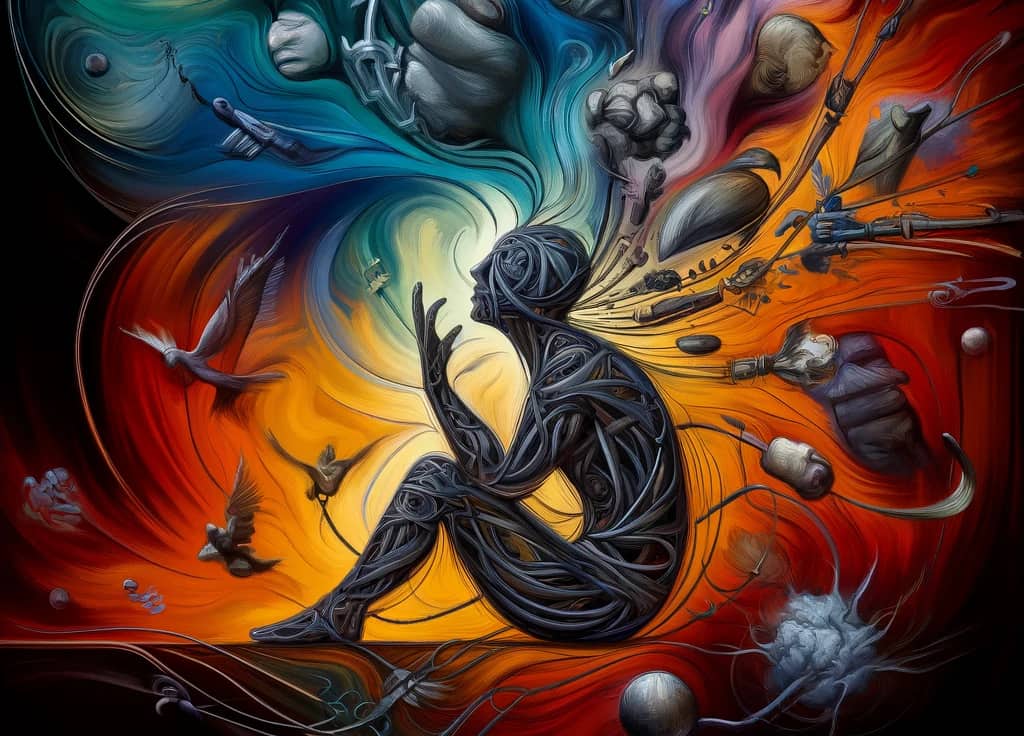
It can be overwhelming, exhausting, and disheartening to see the one you love keep your relationship at arms’ length through their words and actions. This type of Toxic Relationship is hard to see clearly when you’re in it. While your partner may agree that there’s a problem, their insight never seems to last. No matter how much you attempt to persuade, help out, adjust, or accept, you always seem to end up feeling blamed, shamed, and without escape.
Toxic Relationship Traits
Individuals in toxic relationships often struggle with controlling their moods and emotions, lacking the necessary skills for emotional processing. This may stem from a lack of guidance during their upbringing on how to deal with and take responsibility for their behavior. As a result, they may resort to using fear, obligation, or guilt (FOG) to blame, shame, or manipulate you, often through emotional and verbal abuse or “gaslighting.”
Your partner may view life through a negative lens, finding fault in everything and everyone. Even on good days, they remain on edge, anticipating that the next day will bring misfortune. They demand understanding from you but show little empathy in return, refusing to discuss relationship problems and acting as if they don’t exist.
When you point out their toxic behavior, they respond with anger, stubbornness, and take everything as a personal assault. Their intelligence can sometimes work against them, and they react to ordinary stressful events as if they were crises. Despite their destructive behavior, they consistently refuse to seek help, and attempts to address these issues are met with denial.
Your partner may complain about not receiving enough credit for their positive actions, which pale in comparison to their negative and destructive behaviors. This can leave you feeling isolated, lost, and lonely in your relationship. When you express concerns, they claim you’re trying to change them or make them feel inadequate, and they may punish you by withdrawing or refusing to communicate for extended periods.
It can be frightening to be in a relationship with someone who refuses to recognize their patterns of negative behavior. However, it’s essential to remember that you deserve to be treated with love, respect, and kindness. Seeking support from a therapist or counselor can help you navigate these challenges and develop strategies for setting boundaries and prioritizing your well-being.
What Keeps You Stuck
Believing that you must earn affection or attention rather than receiving it freely can keep you stuck in a toxic relationship. This belief often stems from growing up in a similar or chaotic environment, where you may have been blind to patterns of negative behavior. Growing up feeling like you had to earn love rather than receive it unconditionally can contribute to accepting poor treatment in your relationships.
You may have learned to feel responsible and guilty for things that are not your fault, making it harder to set boundaries and assert your needs. Being treated as the “screw-up” or scapegoat in your family of origin can lead to accepting poor treatment in your adult relationships. If you were always treated as the responsible one growing up, with little room for your own problems, you may assume you deserve to be treated poorly.
Growing up in an environment where you aren’t allowed to argue or disagree can lead to believing that you’re always in the wrong and deserve how you are treated. Feeling responsible for taking care of, rescuing, or saving other people can make it difficult to prioritize your own needs and expect others to contribute equally. Focusing more on managing other people’s moods than your own can keep you stuck in a pattern of neglecting your own emotional well-being.
It’s important to recognize that these factors are not your fault, and you have the power to break free from these patterns. Seeking therapy can help you develop a stronger sense of self, build healthier relationships, and learn to prioritize your own needs and well-being. Remember, you deserve to be treated with love, respect, and kindness, and there is hope for a brighter future.
Take the First Step Toward Recovery
If you recognize these toxic relationship traits and patterns in your own life, know that you are not alone and that help is available. Taking the first step towards healing can be challenging, but it is essential for your emotional well-being and future happiness. Reach out to a qualified therapist who specializes in toxic relationship recovery to begin your journey toward a healthier, more fulfilling life.
